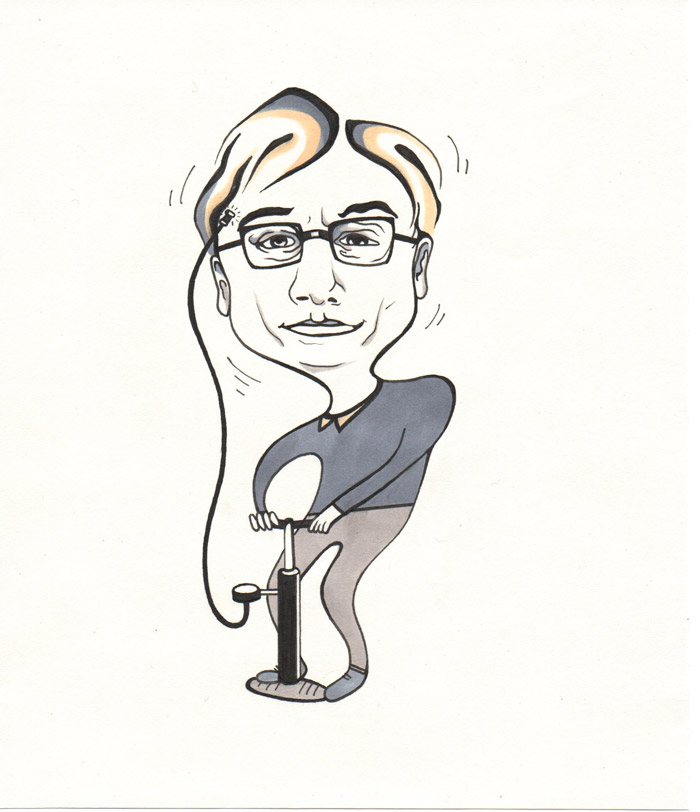For those convinced of the self-absorption of the American “media elite,” the hoopla that surrounded the debut of Aaron Sorkin’s The Newsroom in 2012 was an excellent case-in-point. News that the showrunner of the venerated West Wing—coming off of a successful turn as the scriptwriter of The Social Network (2010)—was to turn his dialogue-laden vision to the cable news industry, was greeted with fevered anticipation.
For many, however, the excitement quickly turned to disappointment. While there were some prominent exceptions—like from ex-CBS newsman and reviewer on Gawker Dan Rather—the reaction to The Newsroom was, at best, lukewarm. Critics tore into the show for its perceived self-importance and sanctimony. That perception was reinforced by the original intro to the show, which made no attempt to hide the direct line drawn between mid-century heroes of TV news and the crusading producers of The Newsroom’s show-within-a-show, News Night with Will McAvoy.
The fundamental problem with The Newsroom, which just began its final season on HBO this week, is that the show was flawed as a form of media criticism. The format of the program—which was set approximately a year and a half in the past—was designed to present a fictional cable show at a fictional cable network, covering the stories of the real world and competing against the real cable news networks. The first episode features the crew of the show finding the right angle on the BP Horizon rig explosion, thanks to one of the producers’ roommates in college (at BP) and his sister (at Halliburton). While that was an egregious example, this tendency of too-perfectly-placed sources and impossibly responsible treatments of traumatic events was replicated throughout the series.
This tendency was improved somewhat in the second season when the writers finally gave the team a fictional story to pursue inside the show’s universe—loosely based off of a botched 1998 CNN investigation into alleged war crimes. Still, to make a show about creating a “better” newscast—that largely consists of rewriting the real-life mistakes of the real-media with the benefit of a year’s hindsight—makes a mockery of the audience’s intelligence. In this way, the show undermines examining the very real problems with the way media—cable news especially—treats breaking news events.
This tendency to simply serve as an instant replay of the news cycle would not be so bad were it not also augmented by the suffocatingly narrow ideological vision of the scriptwriters—Sorkin’s in particular. Always looking to cover up his own problems, McAvoy is noted as a sort of ‘old school’ Republican who has become disillusioned with his party. This framing spins this disillusionment to explain the disdain he displays on air for the Tea Party and other figures on the right. However, despite knowing some older Republican operatives, McAvoy is stated to be a Republican, but never demonstrated or convincingly implied.
Tied in with that is the tension we see between what the show-within-a-show says it is aiming for in cable news, and what it is actually doing. The aim of the show was to create something that would reject the (very real) problems of false balance, useless talking heads, and sensationalism, and approach stories in search of the truth, not talking points. Perhaps in a case of taking Colbert’s musings about reality and “liberal bias” too literally, the efforts of the News Night team came to resemble less an improved CNN, and more an enhanced MSNBC. In a part of the first season finale, McAvoy refers to the Tea Party as the “American Taliban,” a line we are supposed to cheer for as the audience. In reality, it was simply tiresome.
The failure of The Newsroom, in short—not even bringing to the table the way the show’s female characters were written, or the constant, almost distracting love triangles—was that it aimed to be a re-imagining of the American cable newscast, and instead concerned itself with scribbling frenzied rebuttals into the margins of recent history. If we see another in-depth portrayal of the media on TV soon—and as someone who cares about journalism, I hope we do—hopefully they’ll be taking notes on what sank this show. Less sanctimony and hindsight, and more imagination, please.








